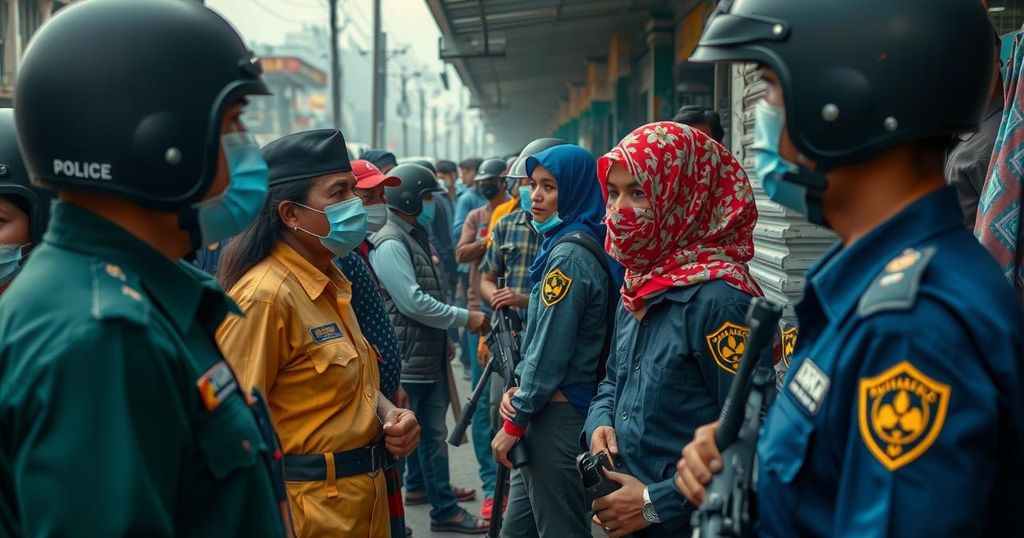Allied Gold Secures 10-Year Deal with Mali Junta for Sadiola Mine Operations
Allied Gold (TSX: AAUC) has formalized a preliminary agreement with the government of Mali, securing a ten-year operating permit for its Sadiola mine and the nearby Diba deposit. This arrangement coincides with the military government’s recent policy adjustments that have increased fees and mandated a lump sum payment concerning contested taxes. While the specific financial terms of the agreement were not disclosed in the company’s announcement, it is noteworthy that the junta, which assumed power following a 2021 coup and retains a 20% stake in Sadiola, had amended the nation’s mining legislation last year. This change permits a rise in royalties and a potential state ownership of up to 35% for mining operations, although Allied has indicated that their deal includes exemptions from these increased royalty rates.
A representative from Allied Gold did not provide an immediate response to inquiries concerning the agreement’s details. The company anticipates finalizing this deal within the coming weeks, alongside negotiating approximately US$275 million in funding for its Kurmuk gold project in Ethiopia. Additionally, Allied is pursuing a US$53 million streaming agreement with Triple Flag Precious Metals (TSX: TFPM, NYSE: TFPM) related to 3% of the output from the Agbaou and Bonikro gold mines situated in Côte d’Ivoire.
According to a note from Cormark Securities, based in Toronto, there has been a modest decrease in Allied’s net asset value for Sadiola due to elevated government royalties, the ownership terms concerning Diba, and the necessity for a one-time cash settlement. However, the analysts have expressed that the conclusion of the agreement alleviates prior uncertainties regarding governmental support, thereby ensuring uninterrupted operations or further developments at the project.
As of Wednesday afternoon, shares of Allied Gold experienced a slight decline of less than 1%, trading at $2.88 per share, giving the company a market capitalization of approximately $720.8 million. This reflects a trading range of $2.75 to $5.90 over the past year. Allied’s counterparts in Mali include major mining entities such as Barrick Gold (TSX: ABX; NYSE: GOLD) with its Loulo-Gounkoto complex, B2Gold’s (TSX: BTO; NYSE-AM: BTG) Fekola mine near the Senegal border, and Resolute Mining’s (ASX: RSG; LSE: RSG) Syama underground mine.
Allied Gold’s strategy involves an initial capital outlay of US$65 million aimed at expanding Sadiola and enhancing its milling operations, with the objective of preserving annual gold output levels between 200,000 and 230,000 ounces for a minimum of four years. Furthermore, production at the Diba deposit is scheduled to commence this year, with plans for a subsequent US$400 million facility projected between 2026 and 2028.
The terms of the tax-settlement payment to the Malian authorities are designed to resolve an array of outstanding disputes concerning taxes, customs duties, maintenance and management of offshore accounts, as well as the comprehensive oversight of the mine and its associated satellite areas. This cash payment is anticipated to be sourced from Allied’s existing cash reserves and alternate funding avenues.
The revised mining code establishes a 10% profit tax and a 10% value-added royalty during the first five years of production, alongside a graduated tax on quarterly revenues that elevates to 2.5% following the initial five-year period. Additional provisions can be enacted by decree as needed.
In its recent statements, Allied has indicated that it, along with other industry stakeholders, has been actively engaging with representatives of the Malian government to assess the implications of the new mining legislation on corporate operations. The resolution of the Protocol Agreement terms signifies a crucial milestone in solidifying the future and ensuring clarity regarding the Sadiola gold mine and related expansion initiatives.
Concerns regarding human rights issues have been raised by organizations such as the Blood Gold Group based in Washington, D.C., pertaining to financial support received by the military government from certain mining operators. This comes amid escalating royalties and fees, which reflect the deepening ties between Mali and Russia, particularly through its Wagner mercenary group, following the withdrawal of international forces from the region.
Mali has faced significant challenges stemming from a jihadist insurgency since at least 2012, which has claimed numerous lives and created instability in the northern territories, thereby precipitating two military takeovers since 2020. Similar circumstances are evident in neighboring Burkina Faso and Niger.
In terms of operational performance, Allied reported a 5% increase in gold production across its operations for the first half of the current year, totaling 173,312 ounces. The company achieved net earnings before finance costs and income tax amounting to US$61.4 million, an improvement from $18.9 million during the same period last year. All-in sustaining cash costs per ounce were reported as US$1,241 at Sadiola, US$1,515 at Bonikro, and US$2,336 at Agbaou.
Overall, the establishment of the agreement with the Malian government is anticipated to provide key governance and operational stability for Allied Gold, supporting ongoing and future mining initiatives.








Post Comment